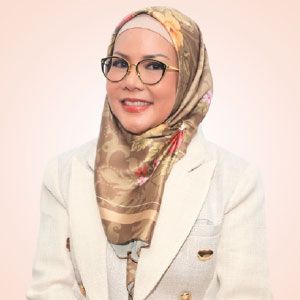
Business executives in Indonesia's palm oil sector confront many difficulties, such as societal unrest, habitat damage, and deforestation. These industry leaders are facing increasing pressure to adjust to a fast-changing market as both consumer and regulatory demand for products sourced responsibly grows. More sustainability and openness are being demanded by stakeholders in the worldwide palm oil industry, as more environmentally and socially responsible practices are adopted. As a result, business leaders in Indonesia are putting creative ideas into practice and upholding tighter social and environmental regulations.
Leading the charge to transform sustainable palm oil production is Debby Pane, Director of Herfinta Farm and Plantation. The business has made significant expenditures in eco-friendly operations under her direction, adhering to ISPO and other pertinent certifications to meet strict requirements. Debby's strategic vision calls for the implementation of zerodeforestation policies and the leadership of community development programs to secure fair labor standards and gain local support. One of her initiatives includes the integration of precision agricultural technology by using drones and satellite imagery to monitor crop health and improve land use.
Debby has implemented cutting-edge techniques including starting a farm of bees to further encourage a healthy ecology. This allows Herfinta Farm to improve the well-being of its palm tree farms by creating an atmosphere that is conducive to bee life. Debby is leading the way in sustainable practices and establishing Herfinta Farm as a front-runner in the palm oil industry by taking a different approach from the conventional dependence on organic fertilizers.
“The opposition to palm oil resulting from environmental concerns was one of the biggest challenges we encountered. We started a thorough re-branding and transparency drive under my direction. We improved the way we engaged stakeholders, honed our sustainability procedures, and successfully informed customers and partners about our work. We were able to dispel misconceptions and establish ourselves as industry leaders in the manufacture of sustainable palm oil through this initiative,” informs Debby.
Community Engagement and Environmental Sustainability
Under Debby Pane's leadership, Herfinta Farm and Plantation is a prime example of a facility that is dedicated to environmental stewardship and community involvement. To promote both economic and educational growth, the company's corporate social responsibility policy places a strong emphasis on meaningful engagement with local communities. Initiatives aim to educate and train locals; among these are agricultural workshops that raise smallholder farmers' incomes and yields. These initiatives have fostered goodwill, decreased tensions, and guaranteed a steady, competent workforce, which has benefited the company's operations as well as the neighborhood.
Herfinta has taken several important steps to reduce the effects of palm oil production as part of its quest for environmental sustainability. The organization follows stringent waste management procedures, refrains from burning land after clearing it, and takes part in replanting initiatives. Herfinta achieves a balance between environmental preservation and economic growth by incorporating sustainability into its business system. Long-term benefits including greater ecosystem services, more productivity, and better investor and customer relations are achieved at the expense of higher initial expenses with this technique.
Herfinta utilizes a strong internal governance structure to ensure adherence to local regulations. A specialized compliance team guarantees adherence to local, national, and international standards by closely cooperating with operational teams to execute necessary adjustments and remaining up to date on regulatory changes. The company also interacts with trade associations and takes part in regulatory consultations to match its procedures with changing industry best practices.
Herfinta enhances the community's infrastructure by enhancing living standards using environmentally friendly methods of extracting palm oil
Leveraging Technology for Efficiency and Sustainability
Herfinta Farm and Plantation uses innovation and technology to improve the productivity and sustainability of palm oil production. The corporation can monitor and manage plantation operations more precisely, cutting waste, improving water usage, and increasing yields by combining IoT devices and data analytics. Real-time data monitoring is made possible by this technology, both in the office and in the field. Herfinta is also investigating biogas plants to produce renewable energy from palm oil mill wastewater to reduce its carbon footprint and promote a circular economy. These technological developments allow Herfinta to update its business practices while upholding environmental responsibility.
Cultivating a Culture of Continuous Learning and Innovation
Herfinta Farm and Plantation cultivates a culture of ongoing learning and creativity by funding extensive training programs and promoting information sharing among staff members. To facilitate the professional development of its staff, the organization provides leadership development programs, online classes, and frequent seminars. The firm also fosters innovation by supporting staff-driven initiatives that improve sustainability and operational effectiveness.
When asked for advice for upcoming entrepreneurs, she emphasizes "I counsel aspiring young business owners to start with a focus on sustainability. Establishing a company that prioritizes social and environmental responsibility would not only have a good effect but also draw in more and more environmentally aware customers. Accept innovation and continue to be flexible in response to changing market conditions. You'll establish a strong basis for your business and differentiate yourself in the highly competitive market of today by focusing on these ideas.” concludes Debby.
We use cookies to ensure you get the best experience on our website. Read more...